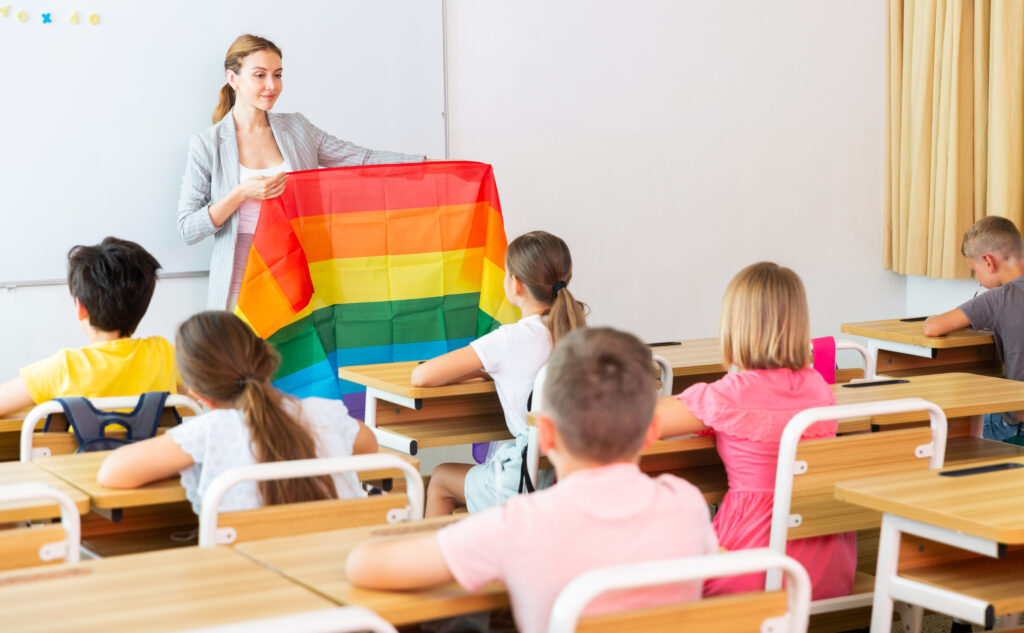Review of The Dark Side of School Reform:
Teaching in the Space between Reality and Utopia
by Jeffrey S. Brooks (Lanham, MD: Rowman & Littlefield Education)
2005, 199 pages, paperback, ISBN: 1578863058, $24.95
Available through Amazon.com
Last year, three-time Pulitzer Prize-winning author Thomas L. Friedman of The New York Times published The World is Flat: A Brief History of the Twenty-First Century. In this book, his fourth bestseller, Friedman meticulously chronicles the changing global economic structure coming into being through fiber-optic cable, work-flow software, and other technologies that have converged during the past decade. Friedman refers to these technologies as “flattening sources,” because they are increasingly allowing companies to outsource jobs to places as far away as Bangalore, India and Shanghai, China–which makes the world seem flatter.
The result, Friedman notes, is an economic revolution of such magnitude that the changes brought by the nineteenth century Industrial Revolution will pale in comparison.
So what does Friedman’s flat world have to do with school reform?
Friedman’s book cemented my concern, as an education reformer, that unless American public schools improve rapidly and stunningly, smart, tech-savvy India and China will become the new global economic powerhouses. The lifestyle and choices to which Americans have long been accustomed are hanging in the balance.
Fictional School, Real Problems
It is against this backdrop of previously unimaginable, seismic economic change–with the most dire of implications for a country whose students consistently score at the bottom of the list on international tests–that I read The Dark Side of School Reform: Teaching in the Space between Reality and Utopia, by Jeffrey S. Brooks, an assistant professor in the Department of Educational Leadership and Policy Studies at Florida State University.
The book gives an up-close view into the mindset of the teachers at Wintervalley High. Although the school name and the names of the teachers are pseudonyms, The Dark Side of School Reform is written around actual interviews conducted in a real public high school.
Wintervalley’s teachers feel disaffected, disillusioned, and alienated. Some of them say the problem is too many waves of education reforms and too much paperwork. Others say their principal doesn’t exert solid leadership. Still others complain of cliques among teachers and a resulting sense of isolation. And apparently a few teachers even fear being fired–although this is difficult for me to envision, considering it rarely happens under union contracts that are hundreds of pages long.
One teacher quoted by Brooks complained of being “very nervous as I near retirement because the school is caught in a spiral of repetition and the younger folks haven’t learned the lessons that us [sic] oldies have to give. … Every decade or so the same reforms come back around but are renamed. Do you think accountability is new? Or standardized testing? Do you think that we didn’t do what they called experiential learning back in the sixties and seventies?”
Predictably, the younger teachers complain that the older teachers are stuck in their ways, etc. After 184 pages of this, I was ready to call the whaaaa-mbulance.
Lackluster Performance
The fact is, every profession has its share of poor leaders and excessive paperwork. Teachers are subject to the same workplace vagaries as the rest of us. Granted, top-down education interventions (some would say intrusions) by the federal government through laws such as No Child Left Behind, for all its benefit in producing some much-needed transparency, haven’t really helped. But that’s what happens when we build unresponsive monopolies.
If Brooks really wants to understand why teaching in a public school is an exercise in ambiguity, he should discard abstruse social and organizational theories and set aside human frailties that are common to all people. Instead, he would be better off studying the implications of public schools as government bureaucracies in which teachers elect, through unionism, to be paid the same as their poorer-performing colleagues in exchange for job protection. I’d be disillusioned, too, if I worked in a highly regulated government job where my compensation was completely unrelated to my performance.
But disaffected or not, if American schools will look in their collective rearview mirror, they will see students from countries such as India and China closing in quickly. The disempowerment that teachers at Wintervalley and elsewhere will feel when schools begin hiring world-class physics professors from Bangalore to teach American kids via webcasting or Voice over Internet Protocol will make their current problems seem trifling by comparison.
Greater Challenges
While Brooks can be fairly credited with decent writing and for having turned his dissertation into a book–a feat few doctoral students accomplish–my recommendation is that you spend your $25 on Friedman’s book instead. While it probably isn’t fair to compare the writing of an assistant professor of education with that of a Pulitzer Prize-winning author, Friedman is much more thought-provoking. In thinking abstractly about the broad economic changes discussed by Friedman, it becomes obvious that the challenges facing our schools are far graver than teachers feeling disaffected or alienated.
And if the teacher alienation problem is in fact widespread–a conclusion beyond the scope of Brooks’ work–then perhaps it’s time to open the profession to non-certified teachers. For example, why not allow professional mathematicians and scientists to teach? And let’s implement reforms that force schools to compete for students. Under such a system, the best teachers would make more money, and the disaffected ones could move on to other endeavors.
In a flat world, talented people realize they have little time to indulge themselves in feeling disaffected. Instead, they’re thinking about how to compete with people who are just as smart as they are and who are willing to produce for less. Talented people welcome competition as an opportunity to distinguish themselves.
These are the important conclusions at which Brooks fail to arrive.
Brian Carpenter ([email protected]) is executive director of the National Charter Schools Institute in Michigan, a nonprofit research and technical assistance organization dedicated to advancing quality in charter schools.



